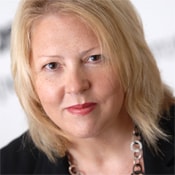There may be no “I” in team, but there is in public relations, and a whole load of other random letters, which is fitting because it takes all sorts to work in PR. But it is particularly important that PROs get on with other people, and work together, rather than as lone wolves. So we asked Derek Newberry, co-author of Committed Teams: Three Steps to Inspiring Passion and Performance, for his advice about how PR people can best pull together.
 One of the biggest challenges for PR teams says Newberry is ‘groupthink’, where people become an echo-chamber for each others’ and their clients’ perspectives: “Alignment is important, but if PR teams become insular, they may begin crafting messages that rub customers and stakeholders the wrong way, without even realising it. Our research tells us that the key to preventing groupthink is to encourage independent and diverse opinions in your team before getting aligned around a message.”
One of the biggest challenges for PR teams says Newberry is ‘groupthink’, where people become an echo-chamber for each others’ and their clients’ perspectives: “Alignment is important, but if PR teams become insular, they may begin crafting messages that rub customers and stakeholders the wrong way, without even realising it. Our research tells us that the key to preventing groupthink is to encourage independent and diverse opinions in your team before getting aligned around a message.”
Newberry says there are two proven methods to avoid groupthink: “First, play devil’s advocate – during key decision points, appoint someone on the team to come up with the best counter-arguments for the consensus view.
“Second, leverage your broader network – build networks within your organisation and amongst stakeholder groups to field-test your thinking and challenge your assumptions.”
Groupthink can affect even the best team, concludes Newberry, but adds that it is especially prevalent in the PR world, where the deadlines are tight and there is pressure to conform to your client’s thinking, as it can be hard to question the group consensus. “Whilst this is tough, the research tells us it leads to better decisions and better outcomes. Taking these simple steps to multiply perspectives will help you craft messages that break through your team’s bubble, and resonate with the audiences that matter.”
How to excel in teams
 Mark Knight, director at PR agency Four Broadgate: “Great teamwork is a valuable part of the PR business as the majority of people in the industry, both in-house or consultancy, work in small teams of three or four people. Just like in a good sports team, if someone makes a mistake it’s important that there isn’t a blame culture, merely the acknowledgement from the team leader that PR is full of challenges and that you should learn quickly and not repeat the mistake. A blame culture will erode teamwork, inhibit creativity and stop people taking the initiative and making valuable suggestions. People will spend more time thinking about covering up their mistakes rather than being proactive.
Mark Knight, director at PR agency Four Broadgate: “Great teamwork is a valuable part of the PR business as the majority of people in the industry, both in-house or consultancy, work in small teams of three or four people. Just like in a good sports team, if someone makes a mistake it’s important that there isn’t a blame culture, merely the acknowledgement from the team leader that PR is full of challenges and that you should learn quickly and not repeat the mistake. A blame culture will erode teamwork, inhibit creativity and stop people taking the initiative and making valuable suggestions. People will spend more time thinking about covering up their mistakes rather than being proactive.
“Personal glory should always come second to collective achievement. Successful teams are built on the strength of the team not on the brilliance of one or two talented individuals. Prima-donnas who thrive on their personal glory can be very destructive to the team ethos.
“Leading by example is a vital attribute for the team leader as well as a large dose of humility. Leaders with humility direct their ego away from themselves to the bigger goal of successfully completing the work. A successful outcome will quickly recognised by the board.
“Team performance can be severely impaired by an over-confident, know-it-all approach. Psychologists have determined that over-confidence causes business people to overestimate their knowledge, underestimate risks, and exaggerate their ability to control events. A toxic mix.”
 Judith Moore, corporate director at PR agency FleishmanHillard Fishburn: “’It's all about the clients’ is something most agency people will have heard more than once or twice in their careers. But, as someone recently reminded me, it also has to be about the teams – as without strong teams, it's unlikely you will ever deliver great work for clients.
Judith Moore, corporate director at PR agency FleishmanHillard Fishburn: “’It's all about the clients’ is something most agency people will have heard more than once or twice in their careers. But, as someone recently reminded me, it also has to be about the teams – as without strong teams, it's unlikely you will ever deliver great work for clients.
“Today, this is never more so the case, with clients increasingly looking for agencies to deliver integrated work. This often means drawing together people with different backgrounds and skillsets to work seamlessly together.
“Great teams don’t happen by accident. They require investment from every individual and, in particular, every manager. Every team member needs to be clear on what success looks like and the role they each have to the play in delivering on that success – starting with the most junior person on the team. This investment can be as simple as updating others on what they are working on through to collectively helping to address challenges or issues – leaving egos and agendas at the door.
“Without a sense of team, the danger is that individuals focus solely on their to-do lists, rather than thinking about how they are contributing to the whole.”
 Christine Jewell, managing director UK of PR agency 3 Monkeys Zeno: “Working effectively as part of a team is incredibly important for output quality, morale, continuous learning and staff retention. Teamwork also smooths out the lows when things get tough, and gives you someone to high-five when things go well. Lone wolves and slackers don’t cut it long-term in agencies as people will find ways to go around or over them eventually. But for the individual and the business, it’s about balance: achieving things for the team, but also achieving a sense of personal progression and satisfaction.
Christine Jewell, managing director UK of PR agency 3 Monkeys Zeno: “Working effectively as part of a team is incredibly important for output quality, morale, continuous learning and staff retention. Teamwork also smooths out the lows when things get tough, and gives you someone to high-five when things go well. Lone wolves and slackers don’t cut it long-term in agencies as people will find ways to go around or over them eventually. But for the individual and the business, it’s about balance: achieving things for the team, but also achieving a sense of personal progression and satisfaction.
“So what makes a good team player?
- Know and use your strengths. Clearly understand the team objective, where your task fits and how you contribute to the team. Don’t be afraid to ask questions.
- Communication is key. Some people quietly get the job done, but shy away from speaking up. Really good team players communicate often and clearly and respect the views and opinions of others in the team. Flag early if you can’t meet a deadline or have hit a problem.
- Be reliable. Get the job done, meet deadlines and keep your word. Good team players are consistent day in, day out, not just some of the time, and they use their initiative rather than always waiting to be asked.
- Attitude is everything. Focus on solutions rather than problems and bring an energy and can-do attitude to your work. Do more than you were asked to do and be prepared to push your comfort zone. Taking on more responsibilities and extra initiatives sets people apart from others.
- Take time to build positive relationships with other team members. You don’t need to be an extravert or indulge in self-promotion. You do need to be an active participant.
“In return you will build a good reputation, gain more visibility and develop influential connections. And I guarantee you’ll have more fun in the process.”
Soundbites
 Victoria Ruffy, founder of PR agency Little Red Rooster PR: “Being a great team player means being approachable, reliable, adaptable, a strong communicator and someone who displays genuine commitment. If you’ve established yourself as the go-to person when a solution is sought the odds are you’ve nailed it.”
Victoria Ruffy, founder of PR agency Little Red Rooster PR: “Being a great team player means being approachable, reliable, adaptable, a strong communicator and someone who displays genuine commitment. If you’ve established yourself as the go-to person when a solution is sought the odds are you’ve nailed it.”
Steven Brown, PR account executive at broadcast agency USP content: “The biggest strength a team player can have concerns involvement. Nurturing talent is a prerequisite of any competent team player, however the very best exceed this by integrating with the lower skilled or time-poor employees to help the team pass the expected key performance targets. In short, the very best team leaders get their hands dirty, and enjoy it.”
PRmoment Leaders
PRmoment Leaders is our new subscription-based learning programme and community, built by PRmoment specifically for the next generation of PR and communications leaders to learn, network, and lead.
PRmoment LeadersIf you enjoyed this article, sign up for free to our twice weekly editorial alert.
We have six email alerts in total - covering ESG, internal comms, PR jobs and events. Enter your email address below to find out more:






